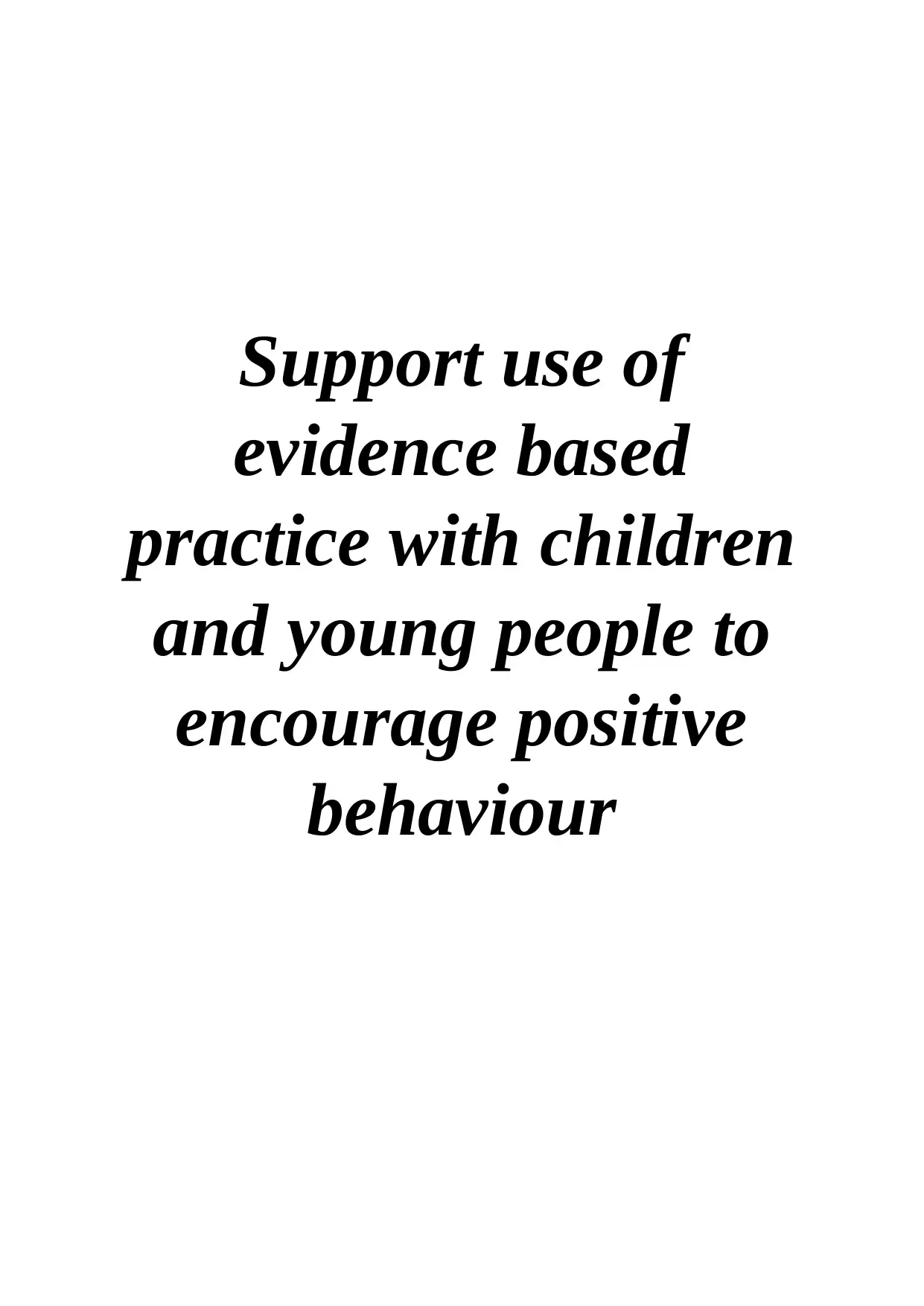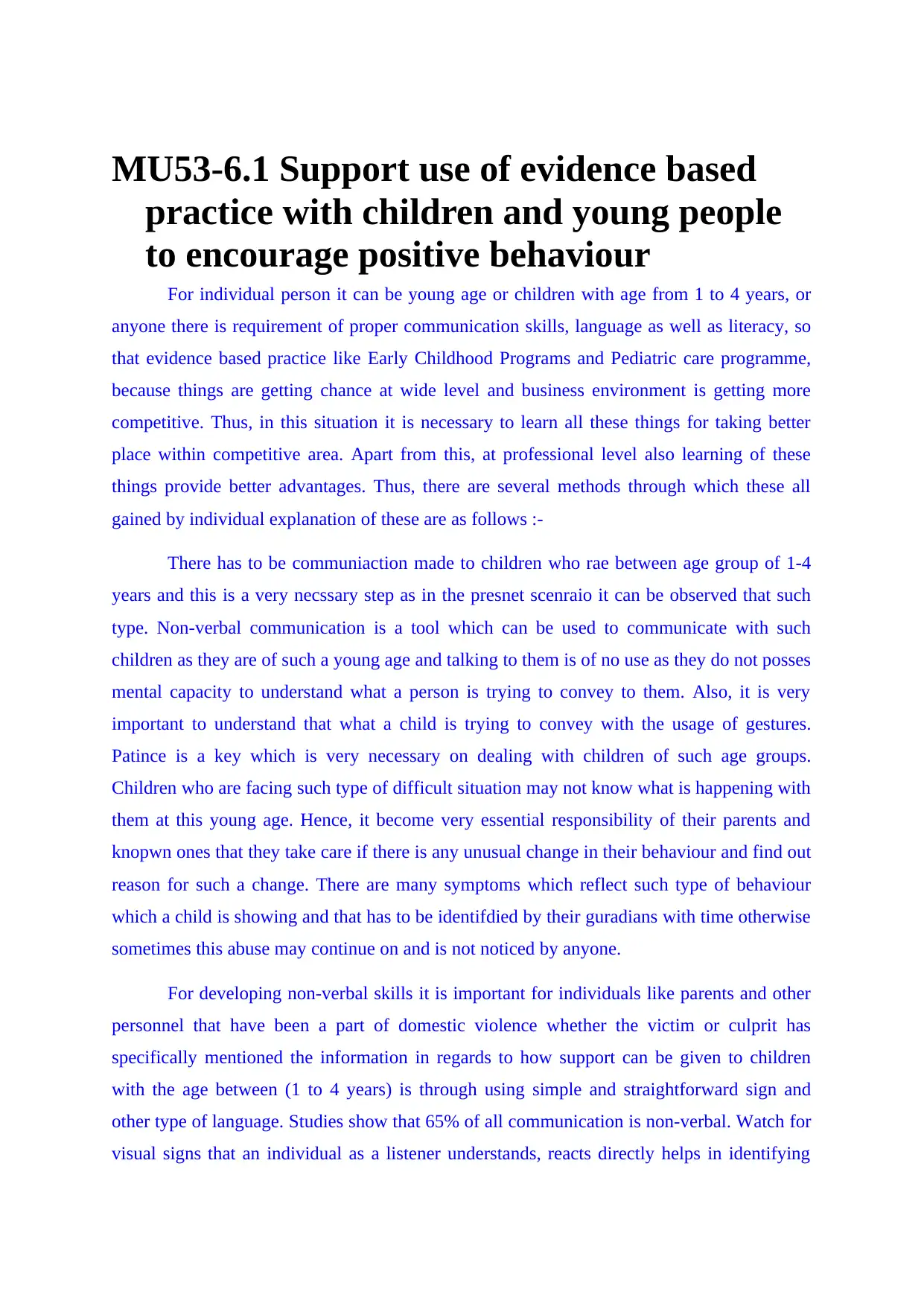MU53-6.1: Evidence-Based Practice for Children and Young People Report
VerifiedAdded on 2023/01/19
|4
|546
|76
Report
AI Summary
This report focuses on evidence-based practices for supporting positive behavior in children and young people, particularly those aged 1-4 years. It emphasizes the importance of communication skills, including non-verbal cues, and highlights the significance of early childhood programs and pediatric care. The report discusses the role of parents and caregivers in recognizing and addressing behavioral changes, especially in the context of potential domestic violence. It references the importance of non-verbal communication and the use of simple language, as well as the potential benefits of early intervention programs in addressing mental health concerns. The report draws upon external resources to support its claims, and provides an overview of strategies to improve communication skills, and underscores the need for patience and understanding when interacting with young children.
1 out of 4











![[object Object]](/_next/static/media/star-bottom.7253800d.svg)